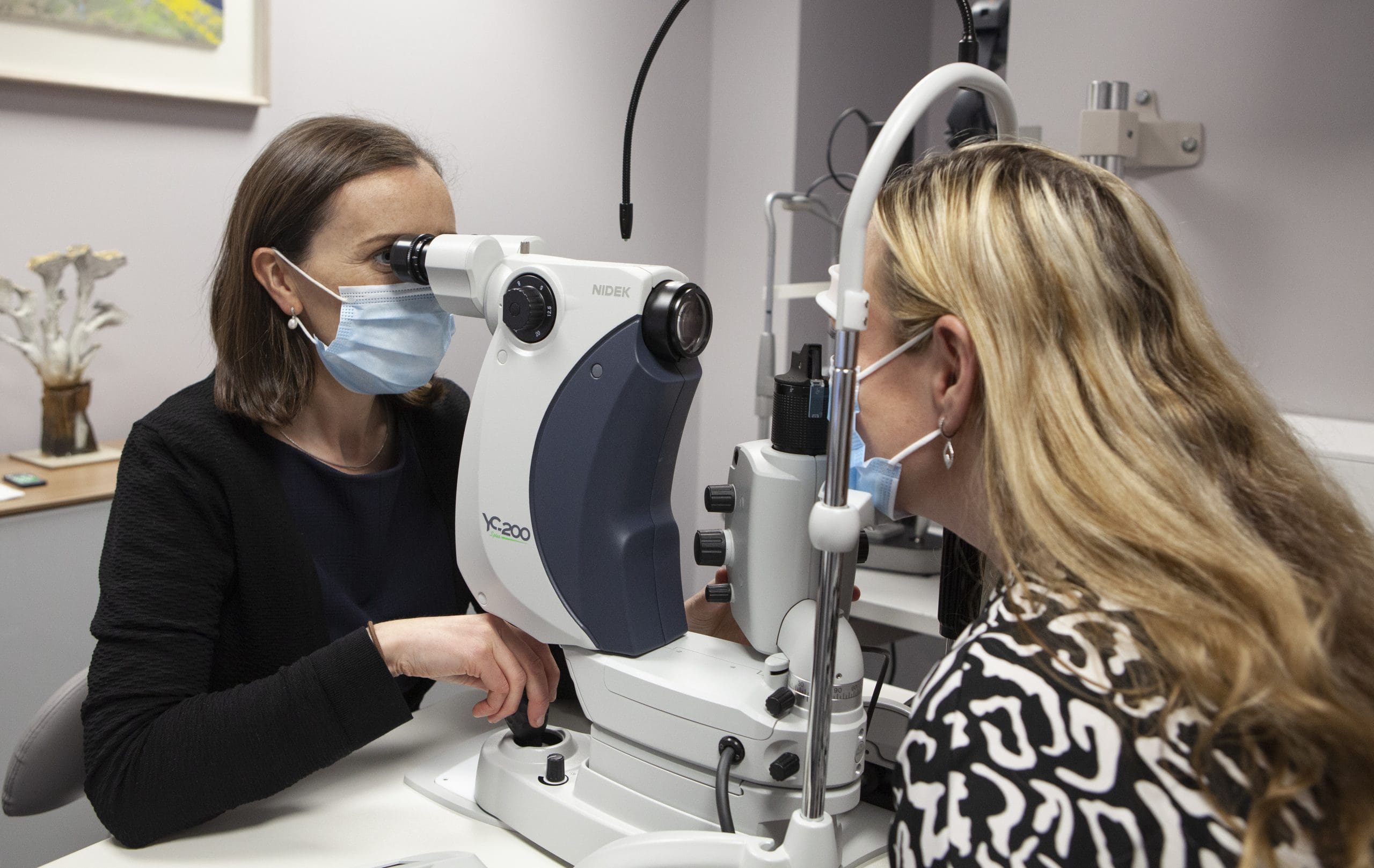When you have cataract surgery, your eye doctor removes your eye's cloudy lens. They replace it with a clear, artificial intraocular lens (IOL)
YAG Capsulotomy Laser
The IOL is held in place in the eye’s natural lens bag (or capsule). Weeks, months or years later, a biofilm forms on this bag and it can become cloudy or wrinkled, causing blurry vision. This is called posterior capsule opacification (PCO). It’s also sometimes called a “secondary cataract” or “scar tissue.” With posterior capsulotomy, a laser is used to make an opening in the cloudy capsule. This allows light to pass through again for clear vision.
What Happens During Posterior Capsulotomy?
The procedure is done at the Progressive Vision clinic. The visit takes about 40 minutes. Here is what will happen:
- Your eye will be numbed with eye drops. You may be given other eye drops as well to dilate your pupil.
- Your eye doctor will point a special laser at the back of the lens capsule and make a small opening.
- Once your vision is clear after the procedure, you can usually do all of your normal daily activities. But you may need to have someone drive you home. Your eye doctor will tell you if there are things you should not do right after surgery.
- If you have no other eye problems affecting your vision, your sight should improve in about 24 hours.
What Are the Risks of YAG Capsulotomy laser treatment?
- The procedure is generally safe and effective.
- As with any surgery, there are possible risks and complications with posterior capsulotomy. Here are some of them:
- The intraocular lens may be damaged or it can move. If the lens moves then further surgery may be required to put it back into the correct position.
- Patients who undergo this laser procedure have a less than 1% chance of developing a retinal detachment. Retinal detachment is a serious condition where the retina releases from its attachment to the back of the eye and can have serious visual consequences.
The condition can be repaired surgically with a high rate of success. - The pressure in your eye may increase. The pressure will be monitored and medication used to control this problem should it arise.
On very rare occasions, swelling may develop in the retina after the procedure. This will cause a reduction in vision which may resolve spontaneously or may require medication, laser treatment, or both. - If you are concerned in any way after your treatment, please contact Progressive Vision on 01 213 5652.
- If outside of office hours, please contact the Emergency Department of the Royal Victoria Eye and Ear Hospital on 01 664 4600.

